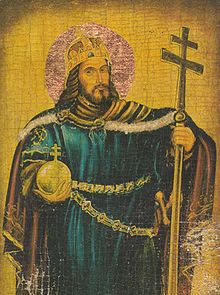

CONTACT US
1052 Budapest, Jane Haining Quay, Dock 11.
Customer support is available daily from 9:00 to 22:00.
In Hungary, there are lots of traditions related to both religious and national holidays. National holidays Hungary are the followings: the holiday of the revolution and fight for freedom in 1848 (15th March), St Stephen’s day on 20th of August (this king established the Hungarian state), and the holiday of the revolution and fight for freedom in 1956 (23rd October).
20th of August in Hungary is the most important day of this hot month. This holiday alloy historical, religious (Catholic), and even folk elements, so the palette of programs and traditions is really interesting and various. Shops and officials are closed; no one works, and during the whole day there are programs all over the country. It was first declared free day by King Franz Joseph at the end of the 19th century. In later ages, actual regime(s) sometimes banned the celebration of this day.
 Who was King Stephen I?
Who was King Stephen I?St Stephen was the first king of Hungary. His father, Géza prince started to Christian conversion among Hungarians (due to political reasons), but Stephen had the main role in this work. He’s considered as the founder of the Hungarian state and also the Hungarian Church. Because of this great work, he was canonized in 1083 and then he has been respected as the main patron saint of Hungary.
On this day, there are several ceremonies all over the country.
The main important and official programs are held in Budapest. These programs start in the Kossuth square with the ceremonial raising of the national flag followed by the military officers’ inauguration. Then you can visit the Saint Crown in the dome hall in the Building of the Hungarian Parliament. According to the national tradition, this was the crown of Stephen which he had got from Pope Silvester II. Nowadays we know that is wasn’t his crown but it is true that this coronation jewellery had an important role in Hungarian history.
Since the XI. or XII. century, a Hungarian king only could be a legal king if he was crowned with this special crown in Székesfehérvár by the archbishop of Esztergom. In the afternoon, a ceremonial mass is provided and after that, you can watch the procession of the Saint Right Hand. This is a relic of the famous first king. During the day, you can take part in several cultural, family or even gastronomy programs. You can go to concerts or visit the ceremony of Hungarian crafts or other fairies. In these kinds of places, products may be expensive but you can receive unique and exclusive souvenirs for your money.
If you go to the event called ‘Street of Hungarian Tastes’, you can try the Cake of the Country. It is a kind of competition among confectioners, and the winner cake will be the national cake of the year which is shown first on this national day. If you have missed tasting, it doesn’t matter because later you can try the cake in confectioneries all over the country. In the afternoon, a harvest procession is organized because this day has not only historical and religious significance but it’s also the traditional holiday of the new bread. Blessing of new bread is the heyday of this event.
At the end of the day, you can enjoy amazing firework. It lasts for long minutes and you can see various patterns and colors during it. This is performed on the bank of the River Danube but all Hungarian TV channels broadcast this program, too, so you don’t need to afraid of missing it. However, if you book a Budapest firework cruise, you will have an unforgettable experience! There is firework in other cities but obviously, the most spectacular one is in Budapest.

On St Stephen’s day, it’s also worth visiting Székesfehérvár. As we mentioned before, this city had a great role in the crowning of Hungarian kings and King Stephen I also regularly lived in this town. For some decades, Székesfehérvár Royal Days have been being held there during which there are interesting and spectacular historical performances. The last accord is the Musica Sacra which is a classical music concert.